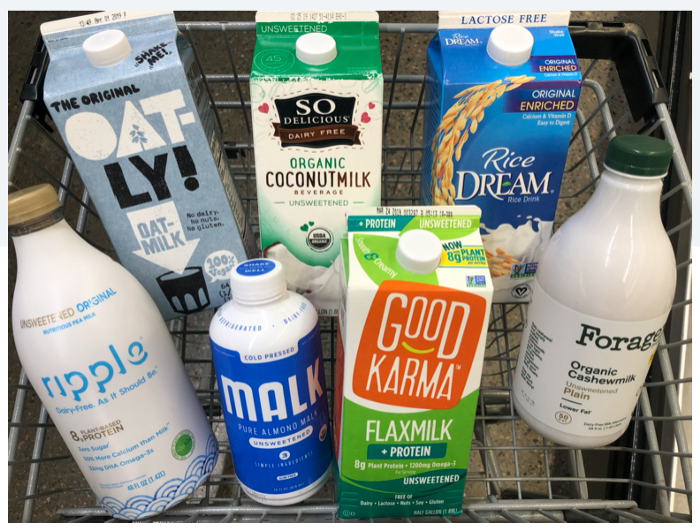Is dairy necessary for good health?

The scientific answer to this common nutrition question is simply no.
Even the mainstream medical community is communicating this fact in top medical journals. The predominant reason we continue to believe dairy is necessary is due to the very successful marketing by the dairy industry that promotes it as beneficial for bone health. Dairy is indeed a source of calcium, a nutrient required for bone health, but there is no scientific evidence that consuming dairy improves bone health or prevents osteoporosis. Some studies even suggest the opposite. Countries that consume the most dairy milk actually have some of the highest rates of bone fractures. What is more important for bone health is regular weight-bearing exercise, vitamin D and all the nutrients, including calcium, obtained from eating plenty of fruit and vegetables.
Parents often worry that dairy is required for normal growth and development in childhood. But when you consider that many people are in fact lactose intolerant after weaning, the inclusion of dairy for some children will result in distressing abdominal symptoms. In fact, dairy consumption is linked to the development of eczema, asthma and acne, conditions that negatively impact a child’s quality of life. Even though children that include dairy in the diet may grow to be taller, this may actually be a disadvantage as greater height increases the risk of developing cancer
When you consider that the purpose of mammal’s milk is to promote rapid growth of their young, it won’t surprise you to learn that milk is high in growth factors such as insulin-like growth factor. In addition, dairy cows are kept pregnancy whilst being milked, so the milk is high in female hormones such as oestrogen. These growth factors and hormones are a concern for the development of cancers in humans, with the strongest evidence supporting dairy consumption as a significant risk factor for prostate cancer in men. In an analysis from the Adventist Health Study-2, which includes participants following a variety of diet patterns from omnivorous to vegan, men consuming 430g/d of dairy compared to those consuming 20.2g/d had a 27% increased risk of developing PC. The major rise in risk of prostate cancer was seen to occur between the zero intake category and second quintile of the dairy consumers, with the risk then remaining high but plateauing. Compared to participants consuming zero dairy, those consuming the most had a 60% increased risk. These data are supported by meta-analyses that have demonstrated a dose-dependent increase in PC risk with dairy consumption. Although the association in not as strong for females cancers, there is genuine concern that dairy consumption may increase the risk of endometrial, breast and ovarian cancers.
There are better choices. Swapping cow’s milk for soya milk could reduce the risk of breast cancer by up to 32%. Similarly, soya milk consumption has been associated with a lower risk of prostate cancer, A review of 17 randomised controlled trials compared cow’s milk to soya milk consumption and the impact on cardiometabolic health. The analysis showed that soya milk improves cardiovascular risk factors, including LDL-cholesterosl, blood pressure and C-reactive protein, a marker of inflammation. Interestingly, there was no difference in results when considering soya milk with and without added sugar.
Fortified soya and pea milks have the same amount of protein and calcium as cow’s milk without the saturated fat and health risks associated with dairy consumption. Health Canada’s 2019 dietary guidelines recognise that dairy is not essential in the diet and have removed it as a food group.
The addition of milk and other dairy products to an otherwise healthy plant-based diet centred around fruits, vegetables, whole grains, beans, nuts and seeds has no discernible benefits and may even cause harm. When the ethical and environmental considerations are taken into account, this leaves no doubt that dairy is best left off the plate.
